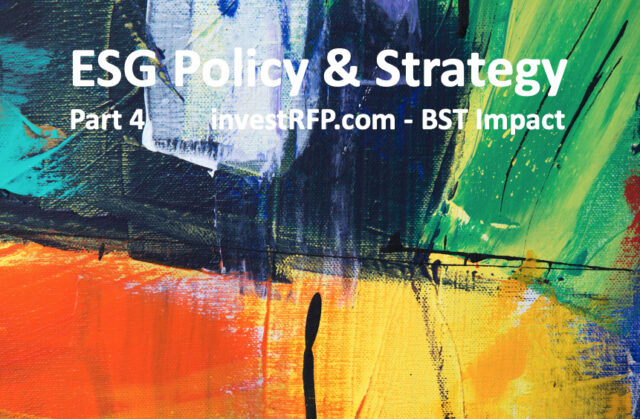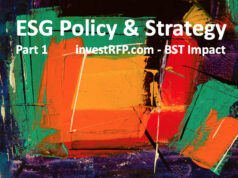By Kristina Touzenis, Managing Partner BST-Impact
Enforcement Mechanisms
| Concerning enforcement mechanisms, it is being discussed whether these should be established in the form of judicial enforcement (with liability and compensation in case of harm), and/or supervision by competent national authorities, possibly coordinated at the EU level (with effective sanctions in the case of non-compliance).
Businesses may be further required to ensure an ongoing risk assessment and, should risks be identified, establish a due diligence strategy indicating the measures they plan to adopt to address them.
The definition of due diligence currently discussed suggests that it will be intended it as inherently risk-based, proportionate and context specific, implying that the extent of implementing actions will depend on the risks of adverse impacts that the company is causing, contributing to or should foresee.
Companies should be prepared
| This may not affect your company tomorrow. But once it comes into force, if you are not prepared you will need to put in governance mechanisms, due diligence mechanisms, and perhaps even basic strategies, policies and codes of conduct that conform.
We offer to assist you to be at the forefront and thus ready when these regulations come into force.
The regulation may be EU focused,
but any company based in the EU with a supply chain
will be affected which means that any supplier
will be affected.
This also ties into upcoming legislation for investors on mandatory reporting on sustainable financing which means that any investor or asset manager operating in, out of or with EU based companies will have to be ready for stricter regulations. Working sustainably is becoming not only a question of catering to consumer pressure, but of not risking being in violation of ever stricter regulations.
International Norms and Standards
| Many actors are not aware how profoundly concrete and operational international norms and standards are when linked to the people and societies and issues they intend to protect and address. And many people simply do not understand the importance of private actors in protecting and furthering rights through the obligation to respect – since private actors are not direct duty bearers under international law.
With increasing regulations on due diligence, on labour and human rights generally from both regional bodies such as the EU as well as nationally, starting out with not only a strong policy but a profound understanding of the importance of using a norms based approach to measure impact, talk about and engage on social sustainability and impact issues also when it comes to new regulatory frameworks can give a company a very strong advantage both vis-à-vis potential clients when show casing their product but also when it comes to reporting and policy engagement.
This article is the Part 4 of a series on “ESG Policy & Strategy”
Part 1: Why asset owners need a good sustainable investment policy and strategy?
Part 2: SFDR aims at preventing greenwashing and ensuring data comparability
Part 3: Working towards the SDGs – at 360 degrees
Part 4: Due Diligence, Supervision and Enforcement Mechanisms
Part 5: Bringing down to “Earth”
Part 7: ESG as a real sustainability tool
Part 8: Awareness and attention towards rights and starndards
Part 10: ESG Policy & Strategy – Key Questions
Expert/Specialist Feedback on investRFP | Kristina Touzenis | BST-Impact
| about
Kristina Touzenis is the Managing Partner of BST Impact. A lawyer and a recognized leader in the effective and concrete operationalization of international human rights standards and principles in complex settings worldwide requiring long-term engagement with a multitude of stakeholders, form both the public and private sectors. She has more than 20 years of experience in advocacy, human rights reporting, monitoring, and evaluating as well as in policy making and negotiating at national, regional, and global level. Kristina founded BST Impact with two other partners in mid 2020, together with a pool of experts to help companies and investors to effectively operationalize ESG criteria, SDGs, international norms and the Business and Human Rights agenda into their respective sustainable business strategies, investment processes and risk assessment management systems. Previously, Kristina created the International Law Unit at the International Organization for Migration – IOM, the UN Agency for Migration and served as Head of the Unit from 2011 to 2020. She engaged with government counterparties on legislation development and review as well as with other Agencies within the UN common system, on advocacy and implementation of programmes worldwide. Prior to her appointment at the IOM HQ, Kristina worked from 2006 to 2011 in the IOM Regional Office for the Mediterranean Region, on translating international norms and standards into practice on the ground and from 2002 to 2006 on implementing children’s rights in the Mediterranean Region for an NGO.
| All opinions expressed are those of the author. investESG.eu is an independent and neutral platform dedicated to generating debate around ESG investing topics.










